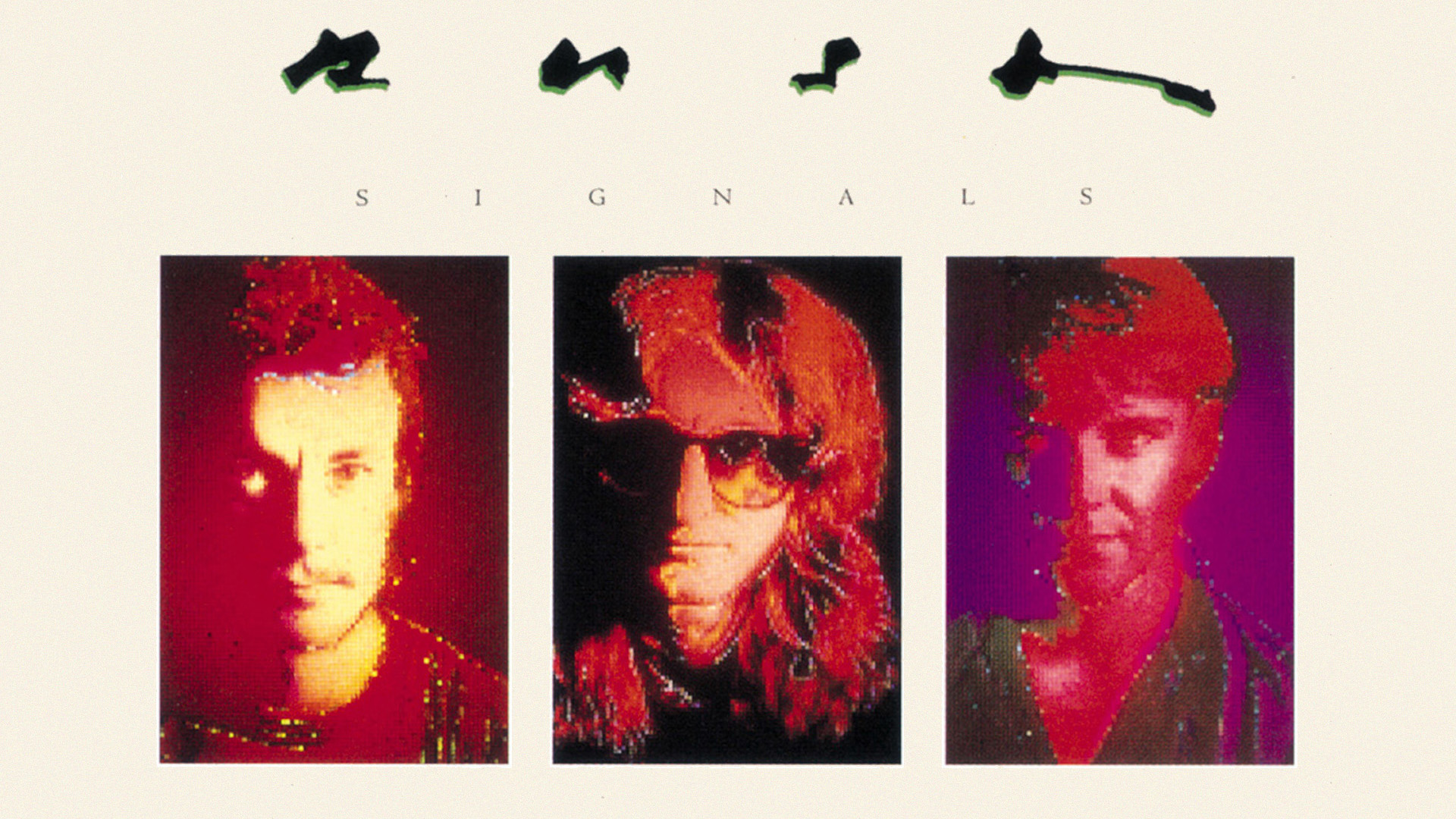Sending New Signals, Rush On The Defense
By Steve Morse, Boston Globe, December 6, 1982, transcribed by pwrwindows

Rush is a band that evokes strong feelings. Its fans are as rabid as any in rock 'n' roll, witness the quick sell outs for shows at the Boston Garden, Worcester Centrum and Providence Civic Center this fall. Rush has thus become the first band to sell-out all three sites since the Centrum opened in September.
But Rush's detractors are equally rabid.
Many new wave rock fans and music critics, for instance, have written off the band as an overblown heavy metal trio with self-indulgent, art-rock pretensions. The Toronto-based group, which performs at Boston Garden tonight, often gets labeled an "arena-rock dinosaur."
Fully aware of such criticisms, drummer Neil Peart said in a phone interview last week, "We've been misunderstood by a lot of people who never listen to us."
"I regret there is that negative identification with us because I know it's not true." he added. "Just as with many new wave groups, we have the same spirit of rebellion against mercenary forces. And we've gone through the same struggles.
"Maybe it has something to do with the purist mentality that's around these days - that if you like heavy metal music, therefore you can't like reggae or bands like the Police. And vice versa. In England you really see that kind of thinking."
To its credit, Rush has been changing. When the group first shot to success in the mid-'70s, it was a stodgy, derivative heavy metal outfit. But its new album. "Signals," reveals a much-improved band that has widened its scope and even added new reggae-rock sounds akin to those of the Police, a band that Rush admires. Singer Geddy Lee is also more under control than in his shrieking days. while classically trained lead guitarist Alex Lifeson has added more subtlety and detail.
"We've improved a lot, because we had a lot of improvement to do," Peart admitted. "But our progress has always been sincere - not in an arrogant way, but for our own pleasure. And we've always incorporated music from people we liked, so it has made us stylistically schizoid. For some it is too schizoid: like our new album is too schizoid for some people."
Rush has suffered further public relations problems because of the grandiose, science-fiction song lyrics written mostly by Peart. A Toronto suburbanite weaned on Tolkien novels and escapist fantasies ("I loved to go hiking in the woods and dream of being a forest ranger"), Peart acknowledged that some of his lyrics have been pedantic, but less so on the new album.
"It's like our music," said Peart, who noted he might have become an English teacher were it not for the band. "We've had to prove we could experiment and do complex music, and now that we have the confidence to do it, we can streamline it and put it in a simpler framework. The same with my lyrics.
"Gradually I've grown up with new world writers like Henry James, Theodore Dreiser and on to F. Scott Fitzgerald an Ernest Hemingway ... Somewhere I've realized that I didn't have to aim at being Thomas Hardy anymore, and that I could write a five-word sentence like Hemingway."
Peart, who writes regularly for Modern Drummer magazine and is penning an article on the synthesizer revolution for Omni magazine, has also incorporated Ayn Rand's philosophy in his lyrics - her belief that personal freedom is to be cherished above any government interference.
Although such conservative views have added further fuel to Rush's skeptics. Peart is not about to change them, knowing they also appeal to many of the band's predominantly suburban fans.
"Yes, I do believe you should live for yourself. But the point is that I want to do it voluntarily. I believe in being nice and having good manners and being charitable. But it has to be willing on my part. I don't like someone putting a gun to me and saying. 'Help this person!'"